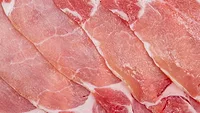FSIS Works to Make Eggs Safer

The U.S. Department of Agriculture’s (USDA’s) Food Safety and Inspection Service (FSIS) has announced new plans to make egg products even safer for American consumers.
FSIS wants to change egg products inspection laws by now requiring official plants that process egg products to develop Hazard Analysis and Critical Control Points (HACCP) systems and Sanitation Standard Operating Procedures (Sanitation SOPs) and to meet other sanitation requirements consistent with the meat and poultry regulations. By doing this, FSIS’s goal is to make it so that finished egg products are completely void of detectable pathogens. The regulatory amendment also uses agency’s resources more efficiently and removes unnecessary regulatory obstacles to innovation.
Also, another proposal that FSIS has brought forth is to eliminate those current regulatory provisions not consistent with that of the meat and poultry regulations. The proposed rule aims to modernize food safety inspection systems at egg products plants. Under the HACCP system, plants will be able to tailor a food safety system that best fits their particular facility and equipment. Furthermore, by removing prescriptive regulations, egg products plants will have the flexibility and the incentive to innovate new means to achieve enhanced food safety.
Yet another change is that FSIS will now be the authority over egg substitutes, a product that poses the same risk as egg products and will, therefore, be treated with the same level of scrutiny and care.
“As we continue to modernize inspection systems and processes, we are committed to strengthening consistency across the services that FSIS inspection personnel carry out for the consuming public," says Acting Deputy Under Secretary for Food Safety Carmen Rottenberg. “This proposed rule will ensure the same level of inspection and oversight of all regulated products as we carry out our public health mission."
The impact cost for the proposed rule is mitigated by the fact that 93 percent of egg products plants already use a written HACCP plan that addresses at least one production step in their process, while also alleviating the unnecessary costs associated with the current prescriptive regulations.
There will be a 120-day period for comment once the rule is published in the Federal Register.
More on egg safety:
Making the Case for Caging: Improvements in Egg Safety and Animal Welfare (2012)
Egg Safety: Avoiding Shell Shock at Retail (2008)
An FDA Update on Egg Safety (2004)
Looking for quick answers on food safety topics?
Try Ask FSM, our new smart AI search tool.
Ask FSM →
Sign up for Food Safety Magazine’s bi-weekly emails!
Subscribe to our podcast: Food Safety Matters!








